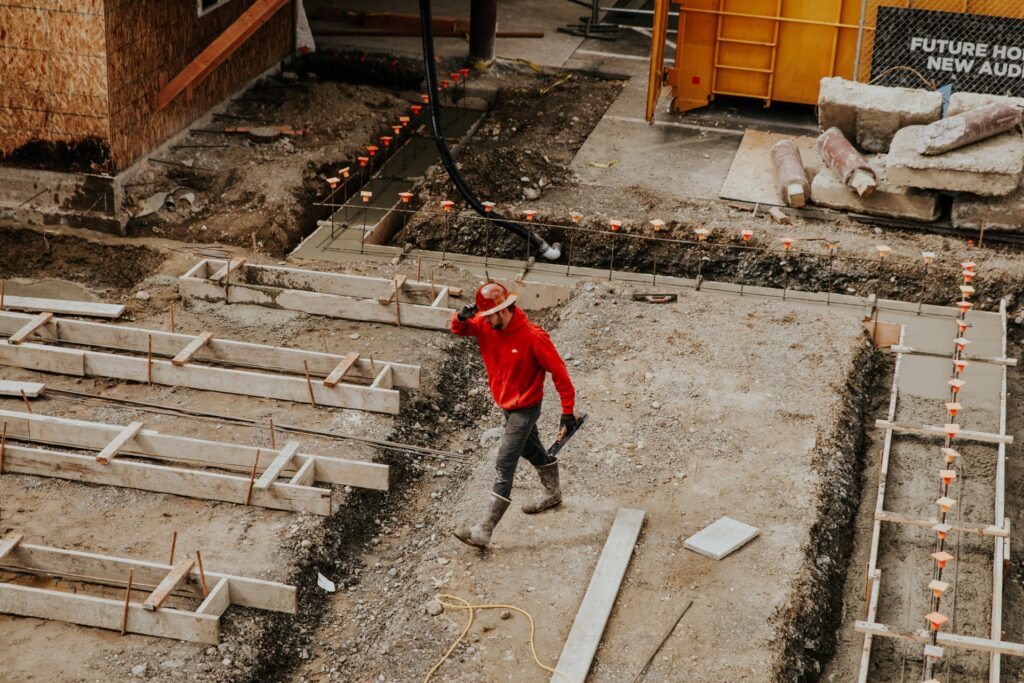
Obtaining a Contractor License in California
If you’re interested in constructing homes and completing renovations, you may want to look into earning a contractor license in California. A licensed contractor is someone who has the expertise, education, and training necessary to perform remodeling projects, repair projects, and large home construction projects. Because of the many types of projects that a contractor can handle in California, numerous contractors choose a niche to focus on. For instance, a contractor may specialize in new home construction projects.
There are three main license types available to you when seeking a contractor license, which includes class A, class B, and class C licenses. Class A licenses are available for general engineering contractors, while class B licenses can be sought by general building contractors. As for class C licenses, these licenses are available for specialty contractors. When you obtain one of these licenses, you can only perform the type of work that’s allowed under the license guidelines.
Keep in mind that not every remodeling or construction project requires a licensed contractor. In the event that the total costs for the project amount to $500 or less, the contractor the homeowner hires doesn’t need to have a license. On the other hand, licensed contractors are always going to be more reliable and reputable than unlicensed ones. This article provides you with a closer look at what it takes to earn your contractor license.
Qualifications When Becoming a Contractor

In order to become a licensed contractor in California, there are numerous requirements that you must meet. If you want to qualify for this type of license, you will need to be at least 18 years old. It’s also important that you’ve gained four or more years of the appropriate education or experience. While there aren’t any strict financial requirements for a contractor license, you will need to obtain a $15,000 bond before you’re able to get your license. A contractor bond is a monetary guarantee that you will adhere to all regulations and standards that a licensed contractor is expected to abide by.
If you find that you are unable to meet these requirements, you could qualify for a contractor license when working under another license holder. Since this individual is qualified to be a licensed contractor, they will serve as the qualifying individual for your license.
Before seeking a contractor license in California, you should also be aware of the reciprocity agreement that the state maintains. California has reciprocity agreements with Utah, Nevada, and Arizona, which means that someone who lives in one of these states may be able to apply for a California contractor license if they meet the rest of the requirements. The main requirement for someone seeking this type of license is that the trade and scope of the work must not vary when seeking a California contractor license. If the out-of-state contractor requirements are identical to the requirements held in California, it will be easier for you to obtain a license.
When you’re trying to make sure that you have the necessary experience to qualify for a contractor license, it’s important that the experience you have is at least journey-level experience. You must obtain four years of experience in the last 10 years. If you only have three years of experience over the past decade, you won’t qualify for this license.
The types of experience that are accepted when qualifying for a contractor license include journeyman, contractor, supervising employee, owner-builder, and foreman experience. Once you have the necessary experience, you can think about taking the licensing exam, which lasts for 3.5 hours and covers a wide range of subjects.
Three General Classifications for the California Contractor’s License

As mentioned previously, there are three general classifications that are available with a California contractor license. The three classifications that you can select from include:
- Class A license – This license is available for general engineering contractors and is required for people who want to perform work that involves specialized engineering skills and knowledge. In fact, you can only work as a contractor or subcontractor on projects where this type of knowledge is necessary. The work that a class A contractor does can pertain to harbors, railroads, streets, airports, irrigation, bridges, and sewers.
- Class B license – This is the most popular type of contractor license in California and is available to people who want to be general contractors. Class B contractors can enter into contracts that involve carpentry or framing. Someone with a general contractor license can work on all kinds of projects aside from ones that involve C-57 well drilling or C-16 fire protection.
- Class C license – The class C license is available to anyone who wants to be a specialty contractor. There are around 60 different specialties that you can focus on when seeking this type of license, which include everything from masonry and fire protection to roofing and refrigeration. It’s important that you know exactly what kind of work you’d like to perform when applying for a class C license. Someone who has this type of license can only work on projects where their specialty is required.
Exemptions for a Contractor’s License

If you’re unsure of the need to obtain a contractor license, there are some exemptions that allow you to complete contractor work without having a license. These exemptions depend on the type of work that’s being performed and the person who’s doing the work. The main types of exemptions that you should be aware of are listed below.
Employee exemption
An employee may not be required to obtain a contractor license if they have no control over the final work results and if they don’t work in a business that’s been independently established.
Minor work exemption
As touched upon previously, you don’t need to have a contractor license to perform work that costs $500 or less. Keep in mind that this exemption refers to total project costs. Work can’t be separated into smaller projects that are estimated at $500 or less to qualify for this exemption.
Owner-builder exemption
When an owner-builder wants to improve an existing structure or build a new one on a property that they own, they can use employees or perform the work themselves without needing to obtain a contractor license. However, this exemption is only possible if the structure won’t be sold in the year following its completion.
Public employee exemption
If public employees are performing work on public projects, a contractor license isn’t required.
Owner-builder contracting exemption
This exemption applies when the owner-builder wants to hire a licensed contractor who can complete the project.
Manufacturer exemption
When a manufacturer installs or sells a finished product, a contractor license isn’t needed as long as the product isn’t added as a fixed part for the structure in question.
Owner-builder main residence exemption
If an owner-builder wants to improve their main residence, they can do so without a license. However, they need to have lived in the residence for at least one year. The exemption can only be applied to two homes in three years.
Applying for a Contractor’s License
When you want to apply for a contractor license in California, you can file an application on your own or alongside a qualifying individual. This application is known as the Application for Original Contractor License. The examination is waived if you’re applying with a qualifying individual. In the event that an examination is necessary, you will need to pay several fees to the CSLB. These fees include processing fees, a classification fee, and an initial licensing fee. You can submit your application by mail or in-person to the CSLB. The CSLB office is located at 9821 Business Park Drive in Sacramento, CA.
The examination that you may need to take is centered around business and written law as well as the specific trade that you’re applying for. This exam lasts for around 3.5 hours and is comprised solely of multiple-choice questions. There are many examination centers that you can attend, which include locations in San Diego, San Jose, Fresno, Norwalk, Sacramento, Oxnard, Oakland, and San Bernardino. Once your submitted application has been approved, the CSLB will send a notice that requests you to appear for the exam. This notice will include a comprehensive study guide that should help you prepare for the exam.
There are times when the exam could be waived by the CSLB. For instance, you could receive a waiver if you’re currently licensed and already have the same type of classification for the license you’re applying for. The same is true if you’ve been in good standing for this type of license at some point in the past five years. You might also be able to obtain a waiver if you’re an employee of an LLC or corporation and have worked as a contractor in a supervisory capacity.
Even if you’re eligible for a waiver, you must still fill out the experience section that’s found on the application. While it can take time to qualify for a contractor license, the steps you need to take to become a licensed contractor are simple and to the point. Once you meet these qualifications, make sure that you’re confident about the type of contractor you want to be before submitting your application.

Jason Somers, President & Founder of Crest Real Estate
With over 15 years of professional experience in the Los Angeles luxury real estate market, Jason Somers has the background, judgement and track record to provide an unparalleled level of real estate services. His widespread knowledge helps clients identify and acquire income producing properties and value-ad development opportunities.
Learn more about Jason Somers or contact us.



